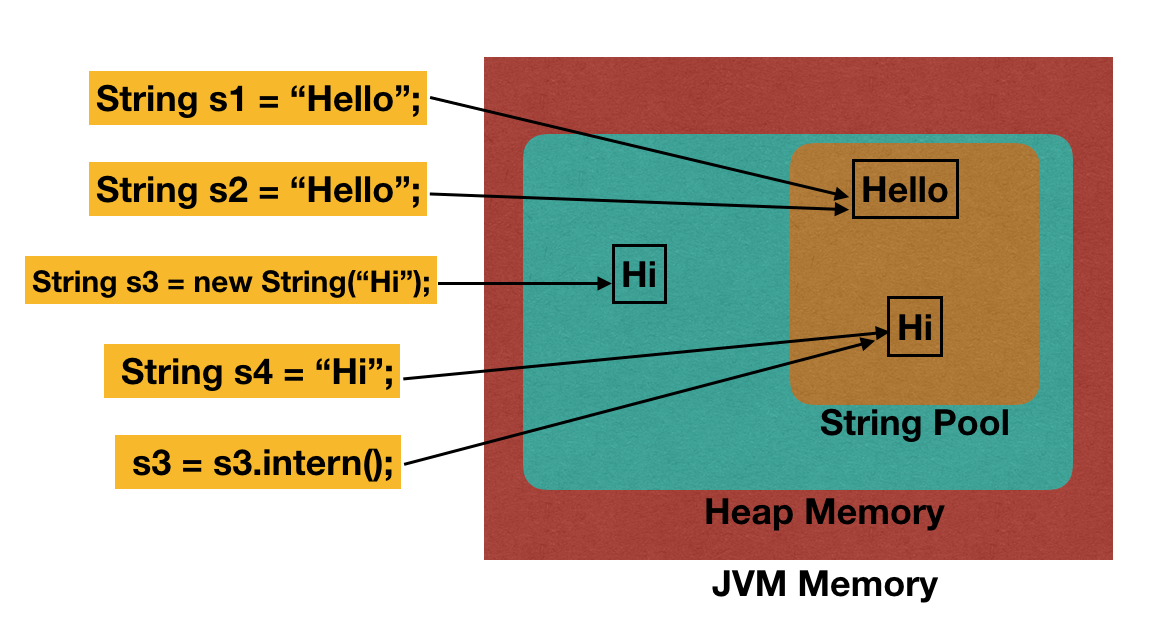Why Are Strings Immutable in Java? Comprehensive Analysis for Programmers
Why Are Strings Immutable in Java? Comprehensive Analysis for Programmers
Blog Article
What Is Immutable Strings and Just How It Functions
In the realm of programming, understanding the idea of unalterable strings is extremely important for creating secure and robust applications. Immutable strings describe strings that can not be changed after they are developed, making sure information integrity and predictability within the code. This basic principle plays an important function in different programs languages and offers a special technique to taking care of data. By exploring the intricacies of exactly how unalterable strings work, one can discover a world of advantages and opportunities that can boost the top quality and performance of software program growth.
The Essentials of Immutable Strings
Immutable strings, as an essential idea in programming, are character sequences that can not be altered once they are created. This indicates that when a string is appointed a worth, that worth can not be altered. In languages like Python and Java, strings are unalterable things, leading to numerous implications in terms of memory administration and information stability.
One of the vital advantages of unalterable strings is that they offer a feeling of safety and security in information manipulation. Because the content of an immutable string can not be customized, it makes sure that the initial data continues to be intact, minimizing the threat of unexpected modifications throughout program execution (Why are strings immutable in Java?). This residential or commercial property also simplifies debugging procedures, as developers can trust that when a string is specified, its value will not be inadvertently altered
When a brand-new string is developed based on an existing one, rather than customizing the original string, the brand-new worth is kept independently. Overall, understanding the basics of immutable strings is vital for grasping programs ideas and maximizing code performance.
Benefits of Immutable Strings
Structure upon the safety and security and effectiveness benefits of immutable strings, their advantages encompass boosting code reliability and simplifying concurrent shows jobs. By being unalterable, strings can not be changed after creation, which eliminates the risk of unintended adjustments in the information they keep. This fundamental immutability guarantees that once a string is created, its worth remains constant throughout the program's execution, lowering the opportunities of pests brought on by unanticipated alterations.
In addition, immutable strings contribute to code reliability by making it simpler to reason concerning the state of a program. Considering that strings can not be changed, developers can trust that a string will certainly constantly hold the exact same worth, simplifying debugging and maintenance efforts. This predictability brings about more reputable and secure codebases.

Execution in Programs Languages
Within different shows languages, the unification of immutable strings is a basic element that influences exactly how information is taken care of and controlled within code frameworks. The application of unalterable strings varies across various programming great post to read languages, with each language offering its very own devices to support this idea.

On the other hand, languages like C and C++ do not have integrated assistance for unalterable strings. Programmers in these languages must by hand execute immutability by implementing policies within their code to stop direct alterations to string objects.
Ideal Practices for Dealing With Immutable Strings
When dealing with immutable strings in programs languages like Java and Python, adhering to ideal methods makes certain secure and effective data manipulation. Among the essential best techniques is to make use of StringBuilder or StringBuffer as opposed to straight controling strings, particularly when taking care of comprehensive concatenation operations. These courses offer mutable choices for string control, helping to avoid unneeded memory allotments and boosting performance.
Furthermore, when working with delicate data such as passwords or API secrets, it is crucial to stay clear of keeping them as plain message in unalterable strings. Using safe and secure storage space mechanisms like char arrays or specialized collections for managing delicate info assists mitigate safety dangers connected with immutable strings.
Real-world Applications and Instances
Discovering useful implementations of immutable strings in different Click Here markets reveals their considerable effect on information integrity and system reliability. In the healthcare industry, unalterable strings play a crucial duty in making sure the safety and security and discretion of person information. By protecting against unauthorized alterations to sensitive details such as clinical records and prescriptions, unalterable strings help preserve compliance with rigorous privacy regulations like HIPAA.
Banks likewise take advantage of the unalterable nature of strings to boost the safety and security of client data and transaction documents. Unalterable strings aid prevent fraudulence and unauthorized alterations to monetary info, providing a durable protection against cyber hazards and making sure the count on and self-confidence of clients.

Conclusion
Best techniques for functioning with immutable strings include preventing straight alterations and utilizing techniques that return brand-new string things. Real-world applications of unalterable strings consist of data encryption, caching, and string control tasks.
Unalterable strings refer to strings that can not be modified after they are developed, guaranteeing information integrity and predictability within the code. When a new string is developed based on an existing one, instead than customizing the initial string, the brand-new value is kept separately.In languages like Java and Python, strings are unalterable by default, suggesting that once a string object is created, its value can not be altered - Why are strings immutable in Java?. Best practices for functioning with unalterable strings include staying clear of direct modifications and using approaches that return new string objects. Real-world applications of unalterable strings include information encryption, caching, and string control tasks
Report this page